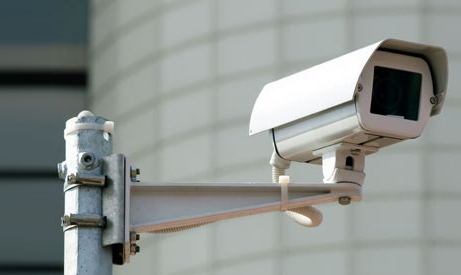Should CCTV be allowed in schools and universities?

A high school in the UK with 1,090 students has over 110 cameras surveilling their day to day activities in and around the school grounds. Though students were involved in discussions prior to the installation of the cameras, campaigners have criticised the move.
It opens up the age old question. Should CCTV cameras be allowed to watch children in schools?
From a criminological point of view, CCTV is one of many methods employed in situational crime prevention: employing overt and covert techniques to deter the ordinary citizen from engaging in opportunist crime - interlinking in with rational choice theory.
There is, in this instance, no need to differentiate between concrete pillars are placed around protected buildings to prevent car bombers to the bleeping tags attached to clothes in stores.
But CCTV watches over us, in Britain more than anywhere as the modern day surveillance society. CCTV arguably goes further than any other common methods employed by recording and storing images of our being to potentially be used against us for an indiscriminate length of time.

There are some points to take into consideration before coming to an abrupt conclusion. Just to stir things up, you know.
Arguments for and against
To add an interesting twist to the discussion, how about cameras in colleges and universities watching over young adults? Clearly while the motives of the institutions focus on the same goals - providing an education to further the chances and qualities of a persons' life, schools and universities cater for different demographics.Schools and universities alike have both been rocked by tragic events seen in Columbine and Virginia Tech. But CCTV can only capture the evidence on tape as it happens, and help understand the consequences of the actions taken by a small minority.
Universities are adult learning environments, and should be treated as such. CCTV in higher education institutions to some extent is no different than ordinary buildings within the urban environment.
However, CCTV systems in schools can be open to abuse, just like any system whereby a person or selected people are trusted to administer and oversee.
Of course, to install cameras in areas of privacy such as bathrooms and changing rooms is intrusive and the very vast majority would naturally object. However, one could argue that these become safe havens for those who wish to commit crime, such as theft or drug dealing, knowing full well that cameras were not there to catch out suspects.
Though some argue that CCTV should be used 'sparingly' to solve crimes, but should not be used to constantly surveil people as they go about their day to day activities, how can the two not co-exist? CCTV can only be used to help solve crime if it is installed as a preventative measure in the first place.
So arguments go both ways. For and against, and it is clear that the issue remains controversial.
What do you think? Should schools, colleges and/or universities be covered by CCTV, or does it do more harm than good?